
Putting on make up in pale neon light rouses my blood
A beautiful flower in Nerikan secretly finds her own way
Only with her beauty… Sukeban Blues
The night in Nanka is cluttered with chaotic flowers
The battle flower blossoms to fight all her foes in the world
Only with her beauty… Sukeban Blues
Between 1971 and 1974, Norifumi Suzuki directed about a dozen pinky violence-related films for Toei*, putting him very much in the driving seat of this short-lived genre, at least in terms of its sleazier and crazier ‘70s incarnation. Given the director’s seemingly all-consuming obsession with dysfunctional sexual weirdness, one could legitimately raise concerns about leaving the guy in charge of a laundry room, let alone a whole cinematic sub-genre, but, four decades down the line, we can hopefully at least enjoy the chaos that resulted.
The first of four Suzuki-directed entries in the ‘Girl Boss’ series, ‘Queen Bee’s Counter-Attack’ is actually one of his earliest shots at the genre, but, though somewhat light on the vengeance and bloodshed side of things, it still manages to deliver just about everything else you could ask of a wild & woolly pinky violence adventure, in industrial strength quantities.
In keeping with many other sukeban movies, the emphasis here is very much on celebration of the hippie/outlaw lifestyle – a kind of hyper-caffinated exploitation version of the previous generation’s ‘sun tribe’ films, but even further removed from reality. Whilst Western movies of this ilk usually purport to represent a kind of “torn from today’s headlines” realism (with an accompanying moral sting), Japanese culture was under no such illusions, with films such as this happily acknowledging that their characters are totally unreal figures living a life of promiscuous sex and comic book mayhem, presumably allowing the devious girl-gangers and long-haired, devil-may-care bikers herein to become irresistible escapist fantasy figures for male and female viewers alike.
Suzuki helpfully signals this by staging the action in a deliberately ‘flat’, cartoonish style, lining up characters on screen like bowling pins and using their exaggerated reactions to move from one set-piece to another at a frenetic pace, allowing for a constant stream of zany incident that leaves us in little doubt as to the director’s tongue-in-cheek intentions. And let’s be glad he keeps his tongue where we can see it, because, this being a Suzuki film, it’s naturally crammed with sordid antics guaranteed to alternately enrage, offend and astound any well-adjusted individuals who find themselves accidently watching ‘Girl Boss Blues: Queen Bee’s Counter-Attack’ of an evening.
The promise of casual sex is ever-present in these ‘Girl Boss’ flicks, with the female characters agreeing to sleep with men at the drop of a hat, offering a taste of paradise to sweating, cowardly salarymen or a good night in the sack to the slightly more appealing young bikers or yakuza… provided they can turn a profit on the exchange. In fact, the code adhered to by the film’s inexplicably named ‘Athens Gang’ strictly forbids members from “dating or being manipulated by one particular man”, and women who refuse to use their sexuality for personal gain, or else harbour dreams of a conventional, monogamous relationship, are treated as fools or neophytes throughout.
Suzuki of course can always be relied upon to go further and get crazier with this material than anyone else on the block, and the #1 jaw-dropping exploitation highlight here is undoubtedly the infamous ‘bike fuck’ sequence, wherein the film’s (male) biker gang – perhaps inspired by the cover of Flower Travellin’ Band’s debut album, perhaps not – decide to race their machines naked as the lord intended, but this time with their ladies (mostly Athens Gang members, in a curious deviation from their ‘no profit/no sex’ philosophy) strapped on beneath them. The starting line is set and the rules are simple: stop when you come, and the last one motoring is the winner! What more of a perfectly ridiculous, OTT exploitation sequence could you possibly ask for!? It’s all in good fun too (well, I thought it was pretty fun at least), but, as mentioned, there is no shortage of other material here that sets out purely to offend.
If you get past the opening twenty minutes – during which a teenage girl is forced to break her hymen with her fingers as a gang initiation rite – you might think there’s not much more the film can throw at you, but for sheer I-can’t-fucking-believe-this nastiness, it’s hard to beat the later sub-plot in which an ‘uppity’ pop idol who ignores her former friends pays rather severely for her assumed transgressions when the gang get their yakuza allies to ambush her in a lift and brutally gang rape her. Objectionable enough in itself, this scene attains jaw-dropping heights of crassness by accompanying the action with a jaunty, swanny-whistle based party tune, and when we cut straight to a bar where the girls are celebrating the violation and subsequent ruined career of their rival, the combined effect is unbelievable – an astoundingly tasteless bit of business, even by the shaky standards of a Toei pinky violence movie.
As is usually the case in these PV flicks though, Suzuki seems determined to have his cake and eat it as regards the film’s approach to its female characters, balancing out such horribly exploitative moments with a solid, pro-female emotional core that remains weirdly convincing in spite of all the outrages that surround it. As noted, the ‘Athens Gang’ live according to a strict set of rules that not only governs their sexual behaviour, but also encourages them to avoid falling under the influence of men and to strive for “power, courage and strength” through their sisterhood (look closely and you’ll see that the gang’s cramped apartment hang-out is decorated with pictures of armed revolutionary fighters). The gang’s current boss and the instigator of their code (Reiko Ike, natch) didn’t sign off on the aforementioned rape scheme, and it is this that leads her into a conflict with returning former boss Jun (played as a total bad-ass by Teruo Ishii regular Yukie Kagawa) that dominates much of the film’s run time. Ike confesses to her second in command (Miki Sugimoto) that she was driven to reject conventional society and join a gang after being raped as a young girl, and, one by one, several of her comrades reveal similar tales of grief, allowing for some moments of genuine catharsis that are hard to write off entirely.
As you might imagine, this sort of thing makes for a movie that is wildly uneven in tone, and the waters are muddied further when things veer heavily into yakuza territory for a whole other male-dominated plotline that plays like a pastiche of one of Kinji Fukasaku’s ‘Battles Without Honour & Humanity’ movies, with Hawaiian shirted thugs facing off all over the place as whisky is gulped, teeth are spat out and dearly-held principles are abandoned. (I was quite surprised to see Tôru Abe, one of Japan’s most respected actors, popping up as a yakuza boss, but actually a quick look at his CV reveals that he paid the rent with cameos in a number of sukeban and PV-related movies in the early ‘70s.) “Without money, honour and humanity can be lost in a second” one character opines over a glass of Johnny Walker, as a highly Fukasaku-esque tale of old-fashioned, principled yakuza being ploughed under by brute economics proceeds to unfold.
All of which strikes me as pretty curious to be honest, given that, although he’d made a few lesser known crime movies up to this point, Fukasaku’s game-changing ‘Battles..’ series didn’t even BEGIN until two years after this movie came out, which makes me uncertain quite what Suzuki was riffing on here, but, well… my knowledge of Japanese cinema being what it is, I’ll leave any further speculation to the better-informed amongst you. Just thought I’d throw that out there.
You won’t have much time to ponder such matters whilst ‘Queen Bee’s Counter-Attack’ is actually in progress mind you, as Suzuki somehow manages to also cram in a hefty dose of parental melodrama, enough bawdy behaviour to fuel the scripts for several ‘Porkys’ sequels, masses of gratuitous dirtbike racing footage, a musical interlude featuring what appears to be a transvestite or transsexual club singer, a devious plan involving blackmailing the head of a pharmaceutical company to provide raw materials for a hyper-addictive new street drug, and, well… you get the idea. Frankly how he manages to crow-bar so much STUFF into an 80 minute run-time is one of cinema’s great mysteries - it’s like that clowns-emerging-from-the-car trick, only infinitely more entertaining.
I guess the final, plot-heavy quarter of an hour drags slightly, and the dirt road shoot-out conclusion is rather po-faced and ineffective, but after a film that’s given us this much joyous mayhem & taboo-smashing craziness, such failings are hard to criticise too much. Provided as you can put your ‘morally upstanding member of the human race’ badge aside for a while and roll with the punches, ‘Queen Bee’s Counter-Attack’ is yet another perfect, mindless slice of everything that makes early ‘70s Japanese exploitation movies so exhilarating.
*Not that stopped him also finding time to fit in such classy-sounding pinku productions as ‘Tokugawa Sex Ban: Lustful Lord’ and ‘Modern Porno Tale: Inherited Sex Mania’ during these years. Bit of an autobiographical slant going on there, Nori…?
Mp3 > The Sukeban Blues








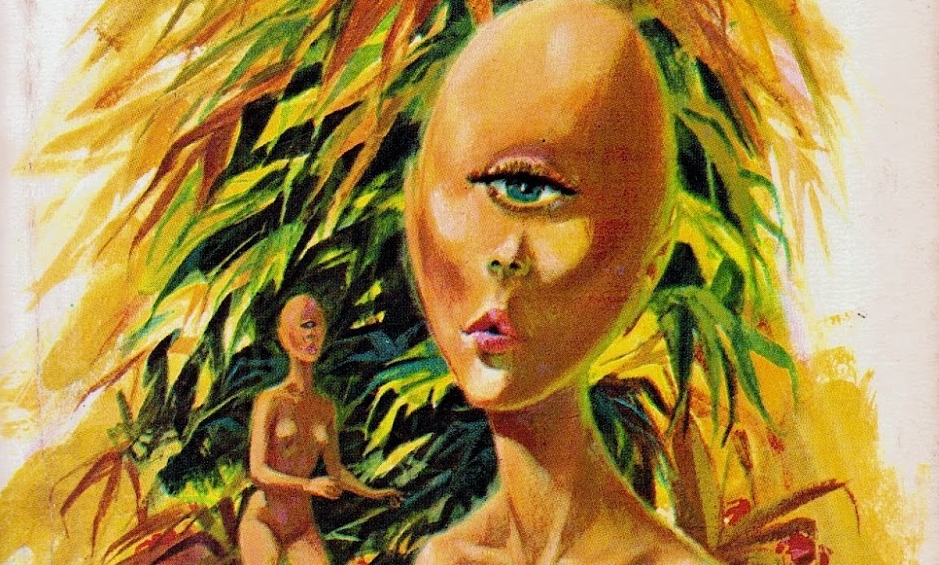
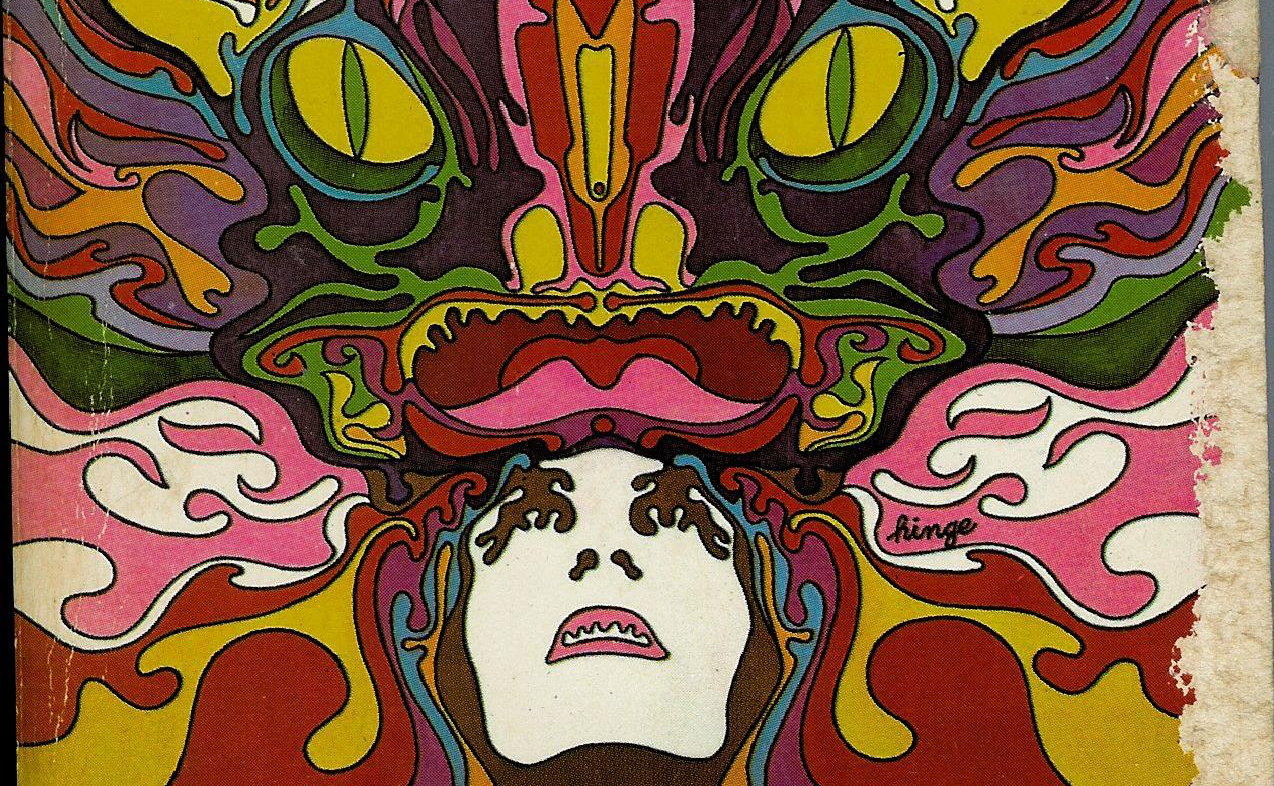


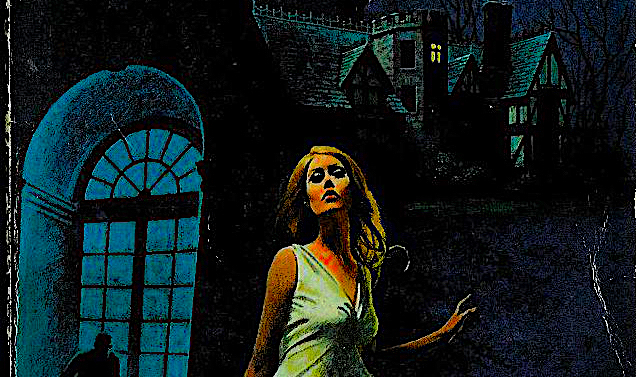
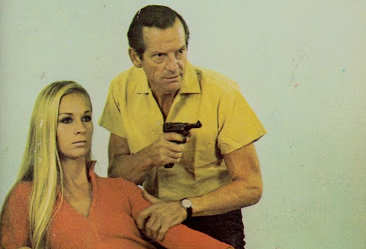

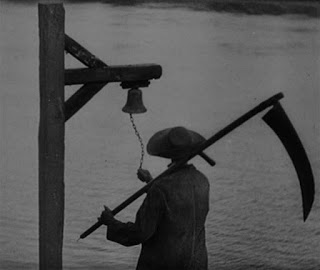
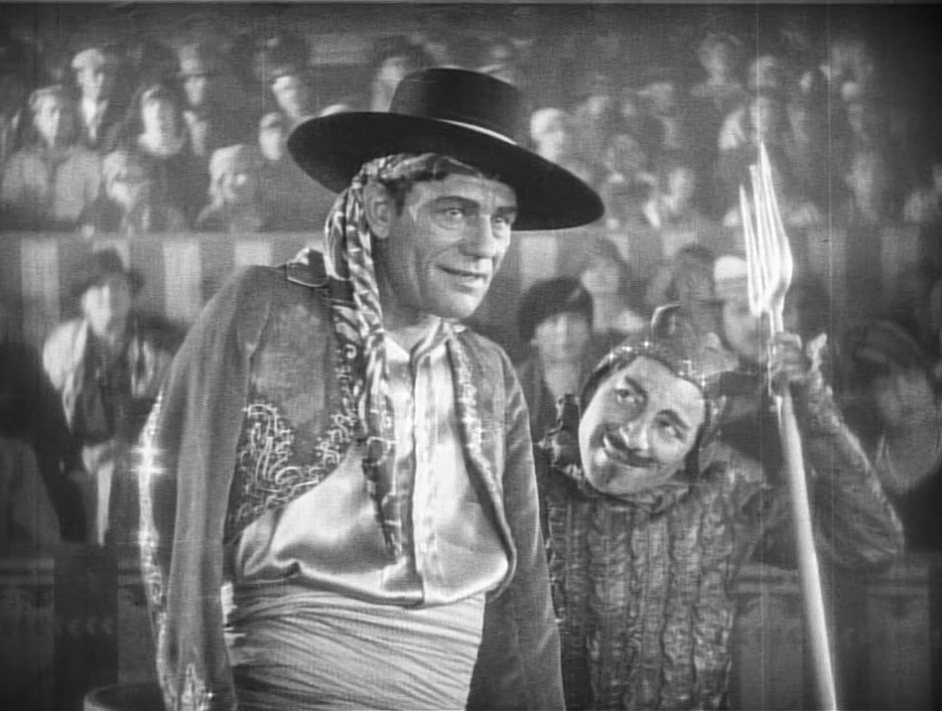
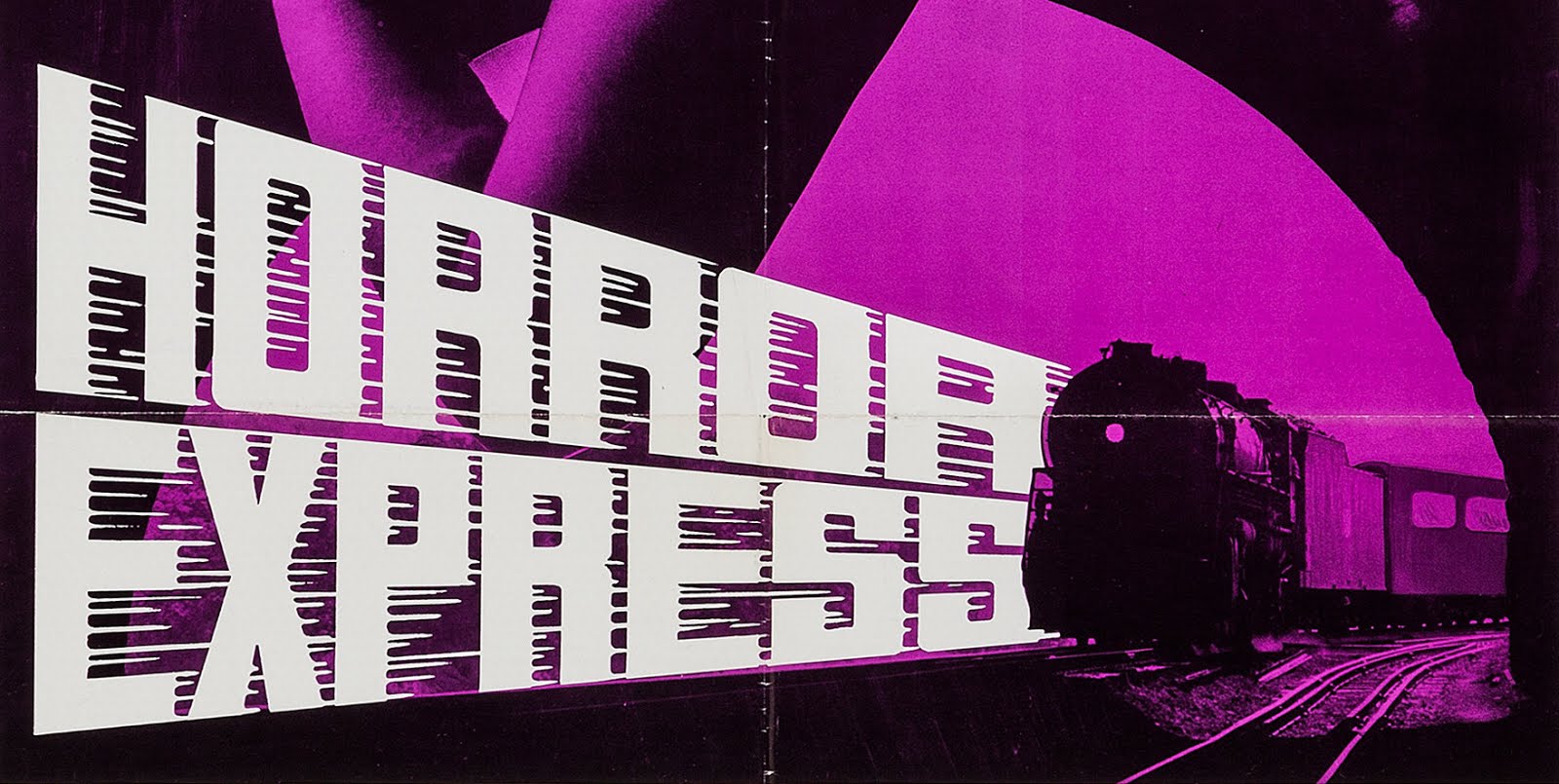
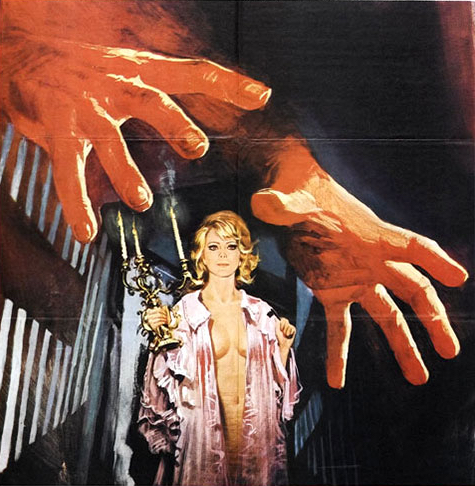

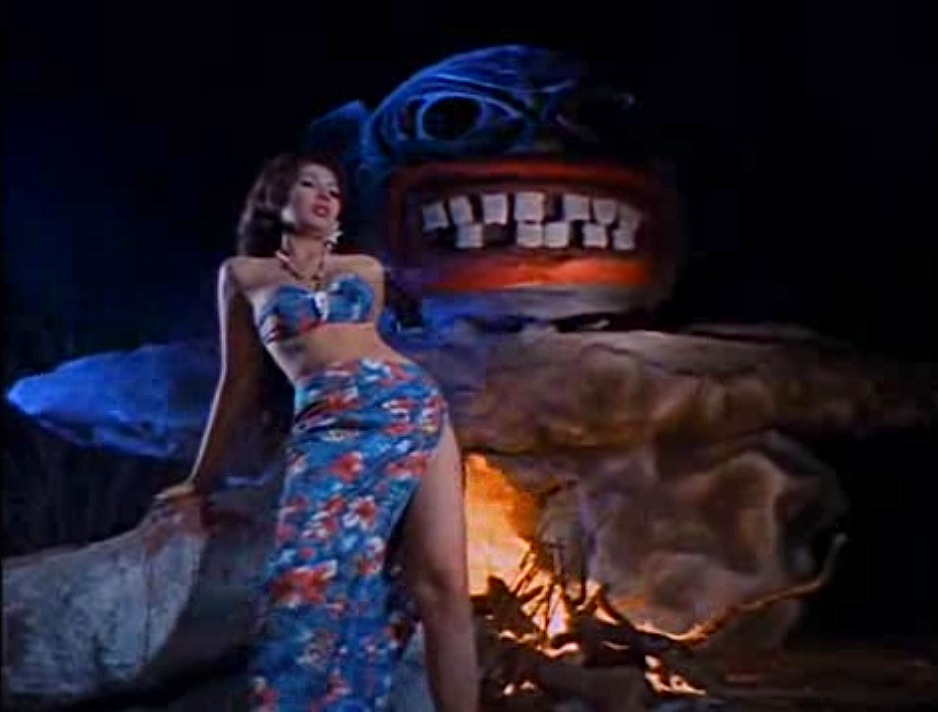




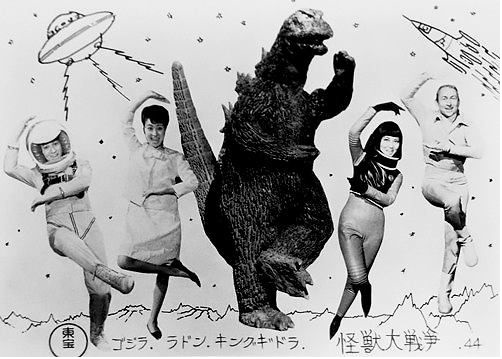
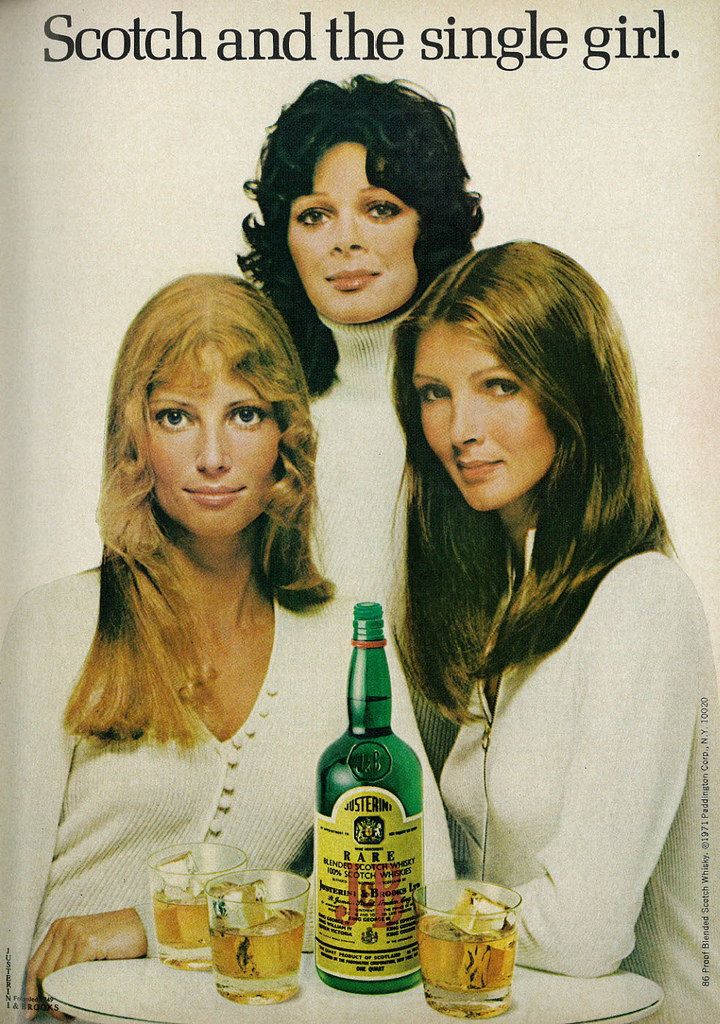


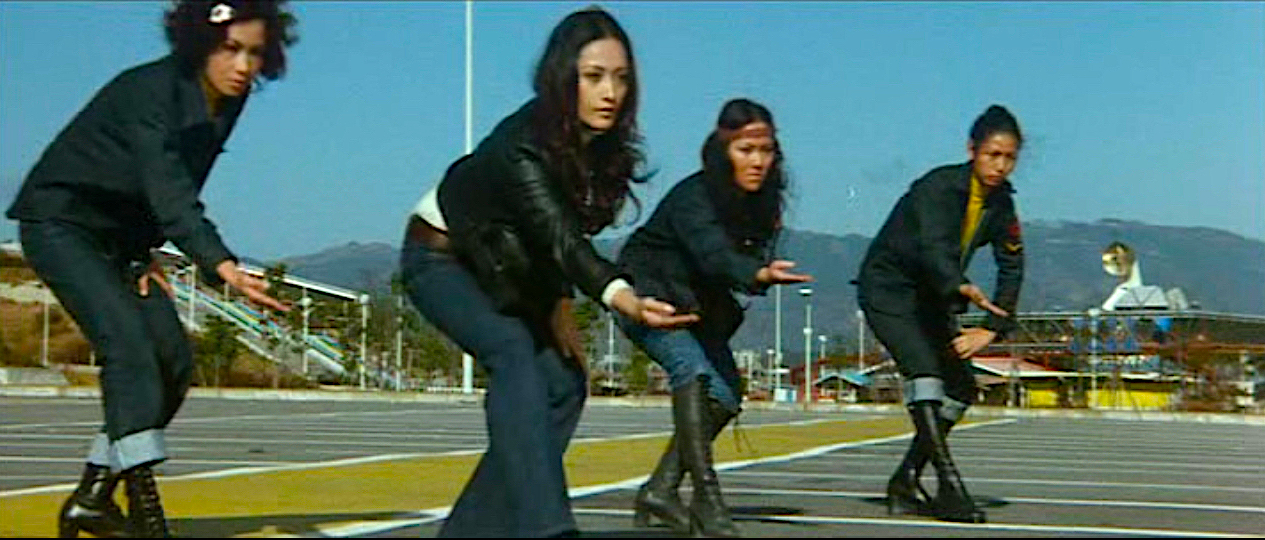



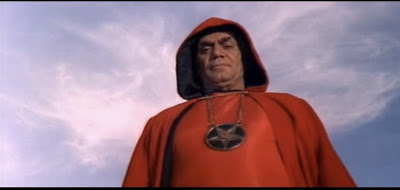









No comments:
Post a Comment